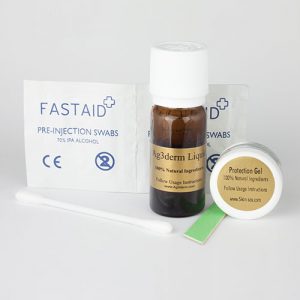Keratosis is a skin disorder that is caused by over production of keratin in the skin. Keratin is a natural body protein that is a structural component of the outer layer of the skin. Actinic keratosis therefore is a skin disorder that is a result of overproduction of keratin leading to scaly and crusty patches on the skin. They are also rough. These patches are mostly pink in color but they can also be in different shades of brown or even red. Lesions caused by this skin problem are mostly painful and are precancerous.
Actinic keratosis affects people of any age. It is very possible for children to get this skin disorder as it is caused by excessive exposure to the sun over the years. This type of keratosis is not an age skin problem and so the age factor is ruled out.
Actinic keratosis is a result of the effect of the sun’s harmful UV light on the skin. As children have no major responsibilities, they spend so much time playing, usually in the sun. It’s very healthy and normal for your child to play as it is essential for growth. As much as playing is good for the child, did you know that excessive exposure to the sun puts your child at risk of actinic keratosis? This is very right and therefore, you should ensure that your child plays in the shade when he or she has to play outside.
There are other ways that can help in protecting your children from this precancerous type of keratosis. Your children shouldn’t go out in the sun between 10.00am and 3.00 pm as the sun is at its best between those hours. The harm brought by the sun is more at this time.
You should ensure that your children are using sunscreen of good spectrum when they are getting exposed to the sun in order to prevent possibilities of them acquiring actinic keratosis.
Tanning is good for the skin but don’t over expose your children to this.
Finally, as you have noted, actinic keratosis is not a respecter of age and so, yes, your children might acquire this type of keratosis though it is rare. Once you notice some changes in your children’s skin, see a dermatologist. The sooner actinic keratosis is treated, the better for your child.
Recent Keratosis Articles:
Where Can Keratosis Affect Me?
Keratosis Light Therapy

